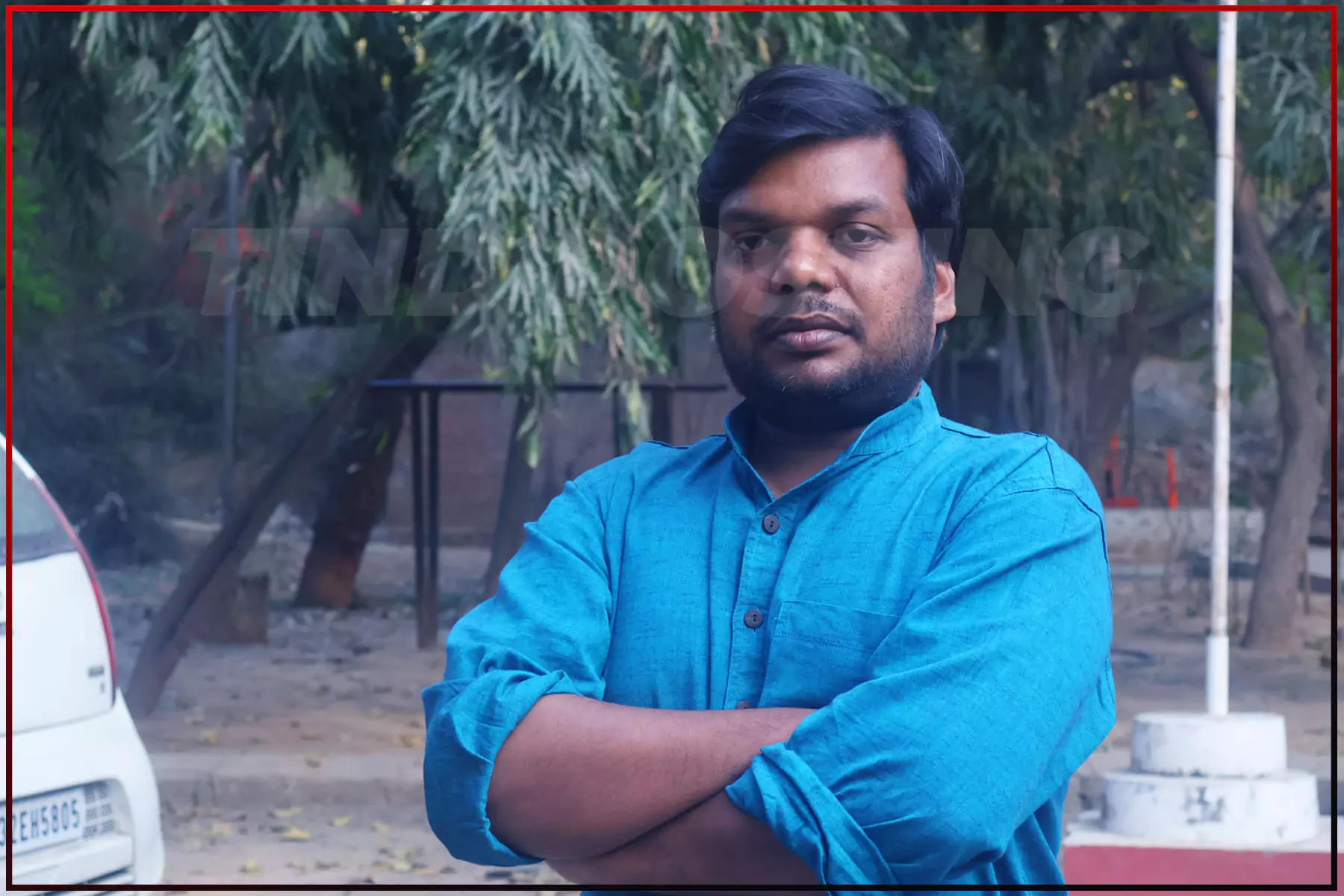As the JNUSU Elections (2023–24) get underway, Dhananjay, the United Left Unity presidential candidate, is making waves among the student body. There has never been a Dalit president of JNUSU before Batti Lal Bairwa, who served as president from 1996 to 1997. Dhananjay’s win will be very important considering the current political climate in the nation, where Dalits are suffering the most.
Since the University of Delhi’s Four-Year Undergraduate Programme (FYUP) was being opposed in December 2014, Dhananjay, who is a member of the All India Students’ Association (AISA), has been actively involved in politics. He is currently working towards a PhD at the School of Arts and Aesthetics.
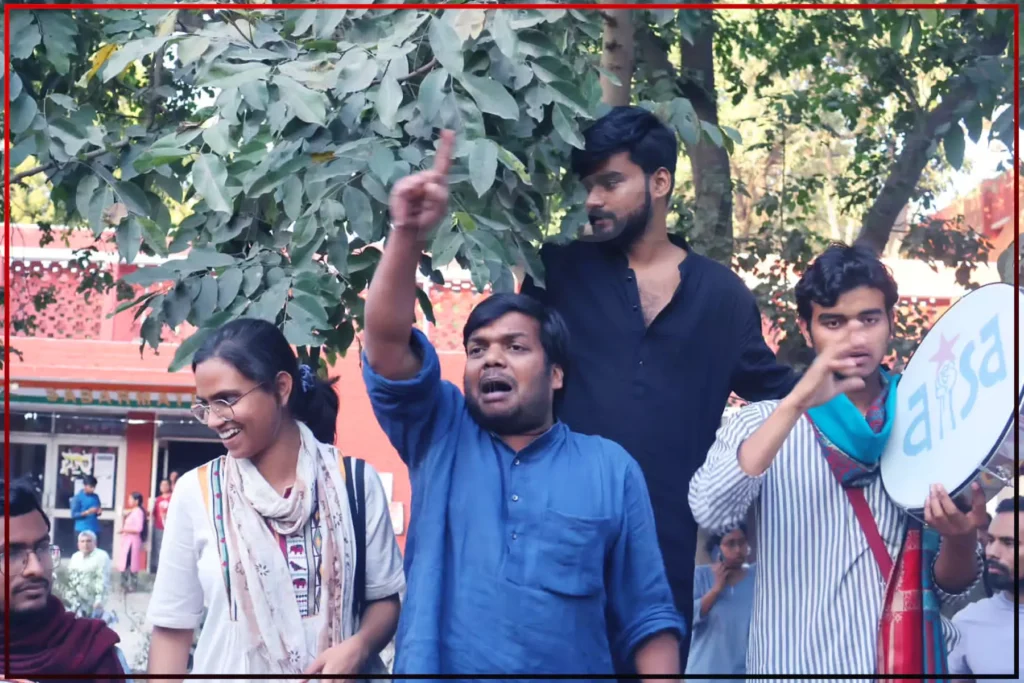
Dhananjay, the youngest of the six siblings, is from Gaya, Bihar, a region with a long history of feudalism. You can be sure that caste discrimination was directed towards him. This stoked his desire to ensure that everyone has access to quality education and is spared the same forms of discrimination. His family lived in Guraru’s outskirts in a village with twenty houses, where he was raised alongside his parents and siblings. The villagers mistreated his father, a retired police officer, on the basis of his caste, calling him only by his caste name and showing him no respect for his official position.
Because of these encounters, his father encouraged him to study engineering in order to provide Dhananjay a dignified life. Despite having a strong academic record, Dhananjay was unable to gain admission to a government college because private education was out of his family’s budget. But the family, struggling financially, gave schooling top priority. In our society, the idea of social justice is not recognised. Our interests and academic record are always called into question, along with our merit,” he claims. Given Delhi University’s reputation for providing the SC community with high-quality, subsidised education, he enrolled in Aurobindo College’s BA in Political Science programme. After that, he attended Ambedkar University, which offered Dalits subsidised education, to pursue his master’s degree in performance studies. He then finished his M.Phil. in theatre and performance studies at SAA, JNU.
Activism in Politics
He finished his education at the Saraswati Shishu Mandir, an RSS-affiliated school in Ranchi, Jharkhand. He saw firsthand how Hindutva politics were being spread at school in nuanced ways that left little room for secularism. He also witnessed the way RSS shakhas were conducted in order to deliberately instill hatred and division in young children. Owing to the Hindutva ideology’s caste hegemony, Dhananjay—a member of the Dalit community—also encountered caste prejudice during his school years.
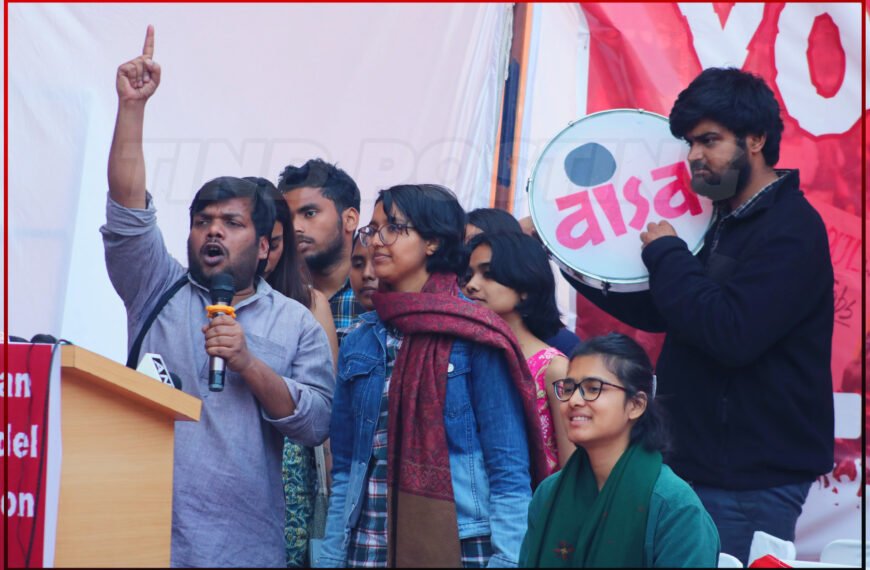
Some students, like Dhananjay, are able to develop a dream of an alternate world from an early age despite the best efforts to instill hateful ideologies in them in such RSS-run schools. Newspaper articles about the CPIML-led struggles of Adivasi and Dalit people in Bihar and Jharkhand were read by Dhananjay. He witnessed the state and corporations encroaching on Adivasi lands and the brutal demolition of impoverished people’s homes. He read the quotes from CPIML, an organisation that supported marginalised and Adivasi people against injustices committed against them. He was inspired by the CPIML’s class and anti-caste struggles because he was raised in rural Bihar and attended school in Jharkhand. This greatly aided him in joining AISA during his time at DU.
Dhananjay was touched by the issue when AISA began to oppose FYUP in 2014. He saw that because the FYUP would result in fee increases that would make education unaffordable, it would disproportionately affect low-income and marginalised students. It made sense for Dhananjay to connect with AISA, which had taken up the “RollBack FYUP” campaign, since he was motivated by CPIML. At this point, he joined AISA at DU as an organiser. He helped hundreds of students organise a successful AISA-led demonstration against the DTC’s policy prohibiting students from getting off red buses.
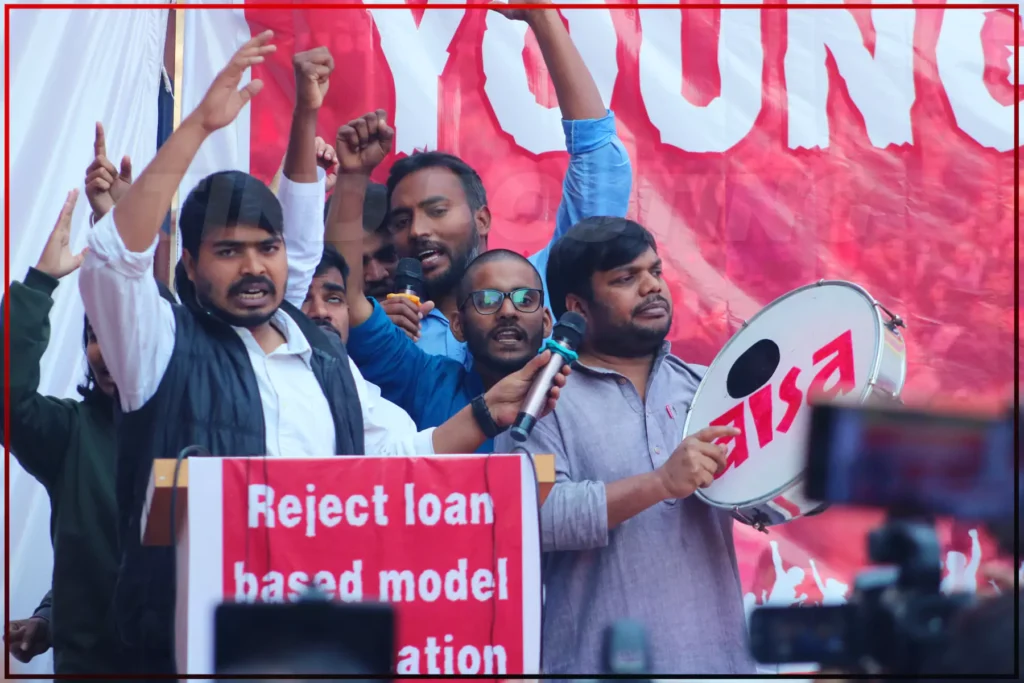
“I do leave politics because I think that the only way we can eradicate caste in our society is by bringing class and caste struggles,” Dhananjay declares. I don’t want the prejudice I experienced to continue. My goal is to bring about societal change that will enable all students to receive an affordable and fair education and give our young people respectable jobs.
His goal was to attend JNU, and on November 2020, the first day of his M.Phil. programme, Dhananjay participated in the ‘Re-Open JNU’ demonstration organised by AISA, calling for the return of the students who had been sent home during the lockdown in March 2020 and the reopening of the campus to all students. During this period, JNU was transformed into a fortress, making it impossible for students to go back to school. The lockdown brought to light the stark reality of the digital divide, which was creating the foundation for the learning gap. He and other AISA activists supported the JNU workers’ rights movement during the lockdown. In addition to advocating for the safe working conditions for sanitation workers and opposing the layoff of contractual workers under the pretence of a lockdown, he participated in AISA’s COVID Helpdesk initiative, which aims to provide essential relief materials, including food, safety gear, oxygen cylinders, and medications, to migrant workers, slum dwellers, and other informal workers.
Activism within Culture
Dhananjay developed as a writer, poet, and theatre professional after being influenced by Safdar Hashmi, Gaddar, and Kabir Kala Manch. He wrote songs and revolutionary plays for the Delhi-based cultural group “Sangwari,” which performed them as a form of resistance and politicised the working class. By putting on the street play “Machine,” Dhananjay significantly contributed to the striking workers’ positive mood during the 2019 DTC strike. He has traversed the nation, performing in more than 8,000 street plays. He has frequently given street plays in Delhi’s bastis.
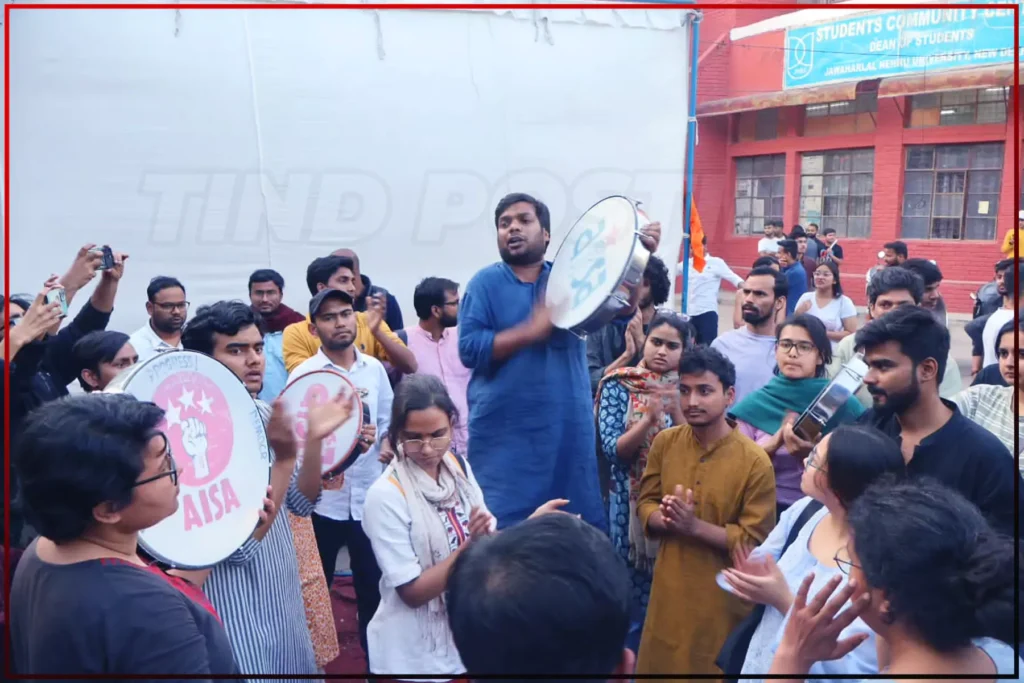
Politics and society are separated by culture, he claims. Reaching the general public is facilitated by this expedient method. Expressionist mediums like theatre and music are understood by the general public. In his view, individuals can become aware of caste and gender issues and effect change internally by engaging in cultural activism. On the subject of the unjust imprisonment of Pricol labourers in Tamil Nadu, he gave a performance at Sabarmati Dhaba, JNU.
Dhananjay envisions a bright future for JNU, one that will foster its dynamic democratic culture in which students actively participate in discussions, dissent, and debates, regardless of the nature of their activism—political or cultural. His goal is to uphold the illustrious heritage of unwavering perseverance and dedication to the student body. He is dedicated to defending campus democracy, fighting against corporate takeover of education and commercialization of education, fighting against gender discrimination and sexual assault, and fighting for social justice and an inclusive campus.
